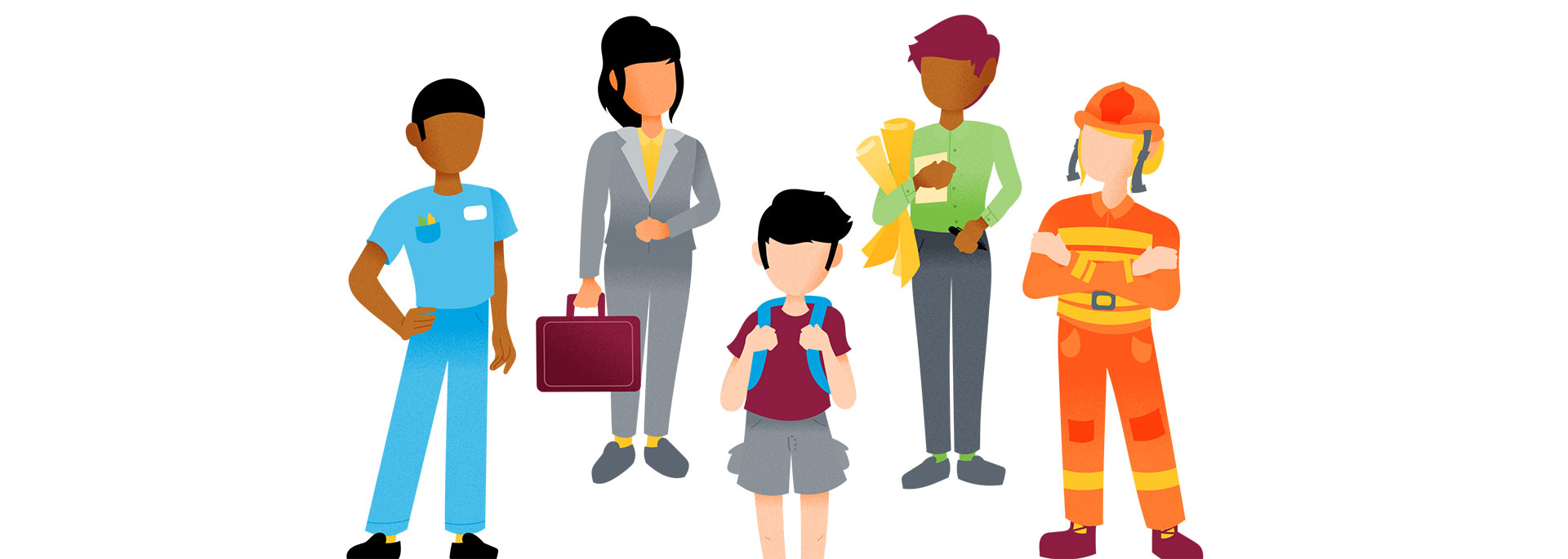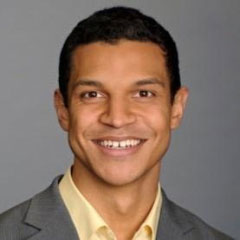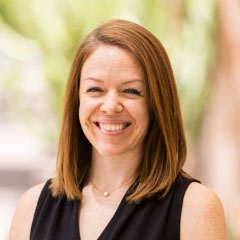Classified staff — including paraprofessionals, custodians and bus drivers — are crucial members of school communities. How can school leaders best leverage them to support students and educators? Arizona State University’s Community Educator Lab helps educators and school leaders design and test new ideas for activating community educators to support students. Through the labs, a small cohort of educators learns about staffing innovations, develops an idea and receives financial and other resources to pilot that idea in their schools. Schools participating in the labs can receive a stipend of $5,000.
Interested? The Community Educator Lab begins at the end of February 2024. Learn more about the program, see answers to frequently asked questions and complete an initial interest form to schedule an informational meeting.
Mishara Cruz, program manager for the Next Education Workforce™ team, provides answers to some of the most frequently asked questions about the CE Lab below. The Next Education Workforce is an initiative of the Mary Lou Fulton College for Teaching and Learning Innovation at Arizona State University. In her role, Mishara supports educators and system leaders who are leveraging community resources in new team-based staffing models that improve upon the traditional one-teacher, one-classroom model. She builds professional learning communities and virtual courses that support educators as they come together to learn how to better support students.
Question: What roles do you see community members play in schools?
Mishara Cruz: Schools are designing and piloting a variety of roles — tutors, mentors, success coaches and more — that strategically support both educators and learners. Team-based staffing models challenge the one-teacher, one-classroom, more traditional approach to education. When community members come in as extended team members, we call them Community Educators. These community members provide capacity and insight in service of deepening and personalizing student learning. They enrich learning environments by forging authentic relationships, sharing expertise and expanding networks.
A few examples come to mind:
- In the Mesa Public School District in Mesa, Ariz., high school career and technical education students get hands-on field experience by tutoring students in need of remedial support at their elementary feeder school. The CTE students establish a feedback loop by reporting their tutees’ progress back to the elementary school teacher on a weekly basis.
- At Kyrene de las Manitas Innovation Academy in Tempe, Ariz., project-based mentors join educator teams for unit planning, they use their expertise to help prepare students during unit exploration, and return as authentic assessors during the unit culmination. The best strategy for partnering with community educators to support staffing is one that authentically supports the learners and educators at the site.
- At KIPP Indy Unite in Indianapolis, Ind., bus drivers work with classroom teachers to address post-pandemic literacy loss. These drivers — who together compose the program Driving Academic Progress — tutor the same group of students every day in between driving shifts, and run the schools’ mobile library.
Q: What is the Community Educator Lab: Classified Staff Supporting Student Success? Why are you focused on classified staff in this program?
MC: The Community Educator Lab brings together a small cohort of schools interested in piloting innovative staffing solutions specific to community member support. The Community Educator Lab Helps schools to explore ways that classified staff can be engaged in developmental relationship building with students to support their developmental and academic needs. Classified staff build relationships with students in many different ways, and their expertise and ideas already exist on a school’s campus. Intentionally activating these relationships in support of student outcomes can have a powerful impact.
Selected staff members attend an online and in person session to learn how other schools and systems have leveraged classified staff members in innovative, meaningful, sustainable roles. In addition, the cohort working group provides educators with time, resources and space to develop a site-specific pilot and problem-solve alongside other schools during the design cycle sessions.
Q: What topics have the CE Lab covered?
MC: We currently have two cohorts for the Community Educator Lab. Classified Staff Supporting Student Success — will launch in the spring of 2024. It aims to empower schools and classified staff to design innovative and strategic ways to foster positive student relationships, create a supportive school culture and help to accelerate students’ academic recovery from pandemic-era learning loss.
The second cohort — Mobilizing CTE Students as Tutors — launched in October 2023. In this design cycle, educators participate in a collaborative design process to develop and launch tutoring as a component of their field experiences. By spring of 2024, educators in this design cycle will have designed a tutoring blueprint based on their local context and launched a mini-pilot to inform pivots and plans for the next school year.
Q: What can the stipend be used for?
MC: Each partner school that fully participates in the Community Educator Lab: Classified Staff Supporting Student Success cohort will earn a stipend* to be used to support their participation, research and piloting efforts as aligned to the Community Educator Lab.
**Funded through an Arizona Department of Education ESSER III grant, and contingent upon the availability of grant funds for qualified schools. Amount to be determined by the number of working group members and possible travel needs.
Q: What else would you like educators to know about the CE Lab?
MC: The CE Lab is a wonderful opportunity for schools thinking about strategic staffing to receive additional resources for planning and piloting, and the chance to test it out. The Lab aims to empower classified staff to take on new roles and responsibilities in fostering positive student relationships, creating a supportive school culture and helping to accelerate students’ academic recovery from pandemic-era learning loss.
The Community Educator Lab begins at the end of February and we are actively seeking schools interested in joining the spring cohort. Learn more about the program, see answers to frequently asked questions and complete an initial interest form to schedule an informational meeting.
Questions?
Contact: Alex Nelson, Senior Program Manager, Next Education Workforce initiative at janels1@asu.edu




